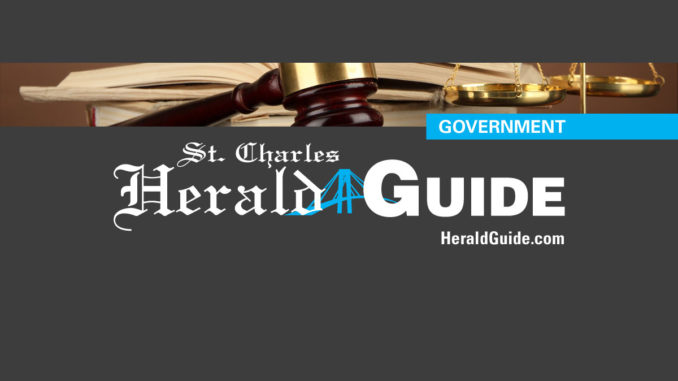
Was there a need for the moratorium?
The moratorium recently passed by the St. Charles Parish Council to halt building on the east bank until the water crisis can be evaluated has not pleased all area people. From New Orleans Sewerage & Water Board to local developers, the council’s move has pleased many, but also enraged others.
Councilwoman April Black said previously that she is acting in the interests of her constituents, who expressed reservations about an influx of trailers to the east bank’s infrastructure, especially the 200 trailers that S&W wanted to place on IMTT field in St. Rose. Emphatically saying that she is not against business, Black said she is obligated to insure a certain quality of life for those already living in her district.
While Black and most of St. Rose residents see the dilemma one way, La. State Representative for the National Assoc. of Homeowners Randy Noel, a man for whom building homes is a way of life, sees it in an entirely different light.
Rather than Katrina and Rita-related, Noel feels that the water shortage on the east bank should have been resolved way before it came to this stage. “Any moratorium is a failure of a government to plan (for future development),” he said. He sees it as a lack of foresight, citing the many years that the parish has known about the east bank’s water problem. “More times than not governments, rather than plan for growth, they react to growth.”
Not all developers echoed Noel’s sentiments. Project Director Joey Murray of Murray Architects was supportive of the ban: “St. Charles Parish has to provide the necessary services, and they are at a point right now where they cannot. I expect that they will do the right thing and get this problem behind them,” believing that this will not adversely affect his business. He is hopeful the moratorium is short-lived.
As for the lack of planning by the parish council, Murray said, “The council could not have anticipated that Katrina would cause the devastation that it did. Adding to our parish some 19,000 additional people all at once could not be foreseen.”
Noel, however, sees the moratorium as an encroachment on property owners: “When (governments) use moratoriums to stop growth, in my mind, it is a violation of our constitutional rights to use our property they way we want to use it,” said Noel, estimating that for approximately a year the ban would not really affect the east bank, as all projects already underway are to continue. However, Noel feels by the end of the year developers will look to other locations to build.
In addition with the slow down, Noel predicts a rise in the price of houses along the east bank: “If you’ve got lower supply at the same demand, the price goes up; it’s Economics 101.”
Waterworks Director Robert Brou said previously that a new treatment plan has been needed for years. Brou said that planning was about 80 percent complete, but the problem was in funding the facility. Therein lies the problem: the facility is still in the planning stages while east bank continues to struggle. Brou estimated that it would take several years for plant to be completed even if groundbreaking started tomorrow.
“The problem with politicians doing planning is that their constituents don’t ever want to pay more money for anything,” said Noel, adding that the council has avoided setting the necessary funds aside for future growth. However, he felt that this phenomenon was not merely limited to St. Charles Parish officials but to politicians in general, as they dislike raising taxes on their constituents.
Ultimately, Noel says that decision for the moratorium is based on politics rather than infrastructure. With the problems that occurred in Florida after Hurricane Charley, Noel said, “All the jurisdictions around the state have not been wanting to put these trailer parks in for fear that they might become permanent,” adding that this includes Orleans Parish as well. He feels the that public has panicked over the problems they saw in Charlotte County, Florida, as it saw an increase in crime and residents were still living in the parks long after they were supposed to be closed. According to Noel, this is the true impetus of the east bank building ban.
Noel spoke to the council on the evening of the moratorium’s nearly unanimous passage-only Desmond Hillaire voted against. At the meeting, he wanted assurances from the council that the halt would only be temporary, which he was given.
After having a conversation with Brou, Noel surmised, “The water usage in October, which spiked up to 88 percent capacity, has come back down in to the 70s. Which means that a lot of people who were visiting and living here after the storm have left.”
The maximum that the east bank can run at is 90 percent, per industry guidelines. With summer coming, traditionally the heaviest consumption period, parish officials enacted the moratorium to stave off potential water shortages, where St. Charles Parish would be forced to buy water from adjacent parishes.
Noel did concede: “I think fully developed the east bank has problems,” but quickly added, “Although I don’t think that there are a lot of developable tracts left on the east bank, I think they may have knee-jerked a little quickly with the moratorium,” said Noel. This summer, he believes, residents shall see just who is right, as the tale of the tape will be at the tap.




Be the first to comment